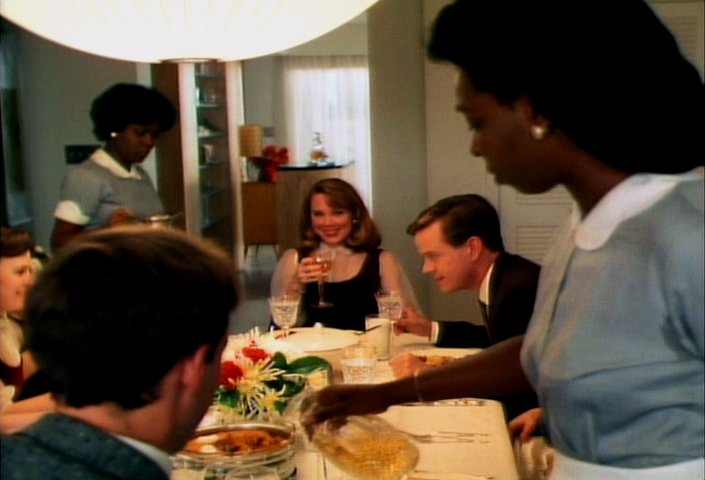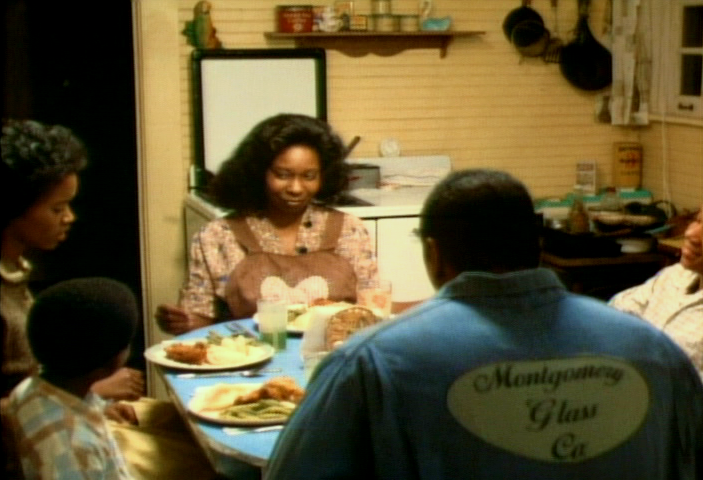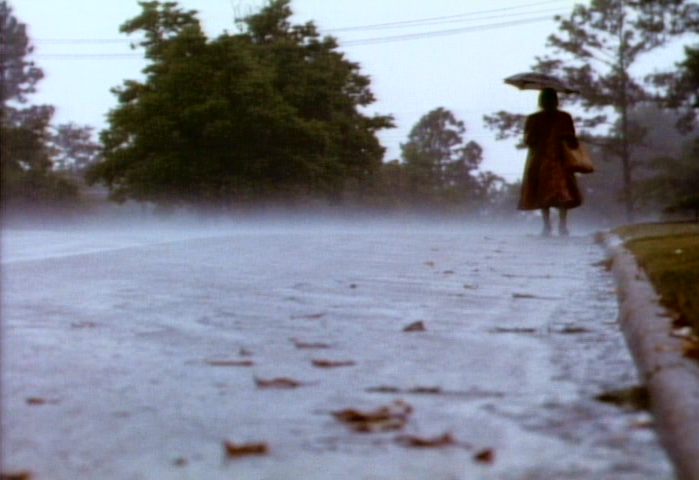

The Long Walk Home(1990) is a film that preceded the current hit “The Help” and you can see that they both share a lot of similarities. If you loved “The Help” then it is just as likely you will emotionally connect to “The Long Walk Home,” the more hard-hitting film.
“The Help” is an easier watch, and it certainly contains more pathos and rebellious humor. The entertainment value is imperishable with its anecdotes, and applause-ready episodes. I think it actually helps you to see that first and then to see “The Long Walk Home.” The current triumphant hit “The Help,” set in Jackson, Mississippi, is a like a warm-up to seeing the more serious and historic minded film.
“The Long Walk Home” stars Whoopi Goldberg as a black maid and Sissy Spacek as the Caucasian housewife employer in the volatile Montgomery, Alabama where segregation was at its worst. The events of “The Long Walk Home” follow the aftermath of the 1955 Rosa Parks arrest, the black woman who refused to give up her seat to a white person. Eventually there would be an organized bus boycott and the development of a car pool system for displaced blacks that angry white people would protest. But in the early months following the Montgomery Bus Boycott, it forced women like Odessa (Goldberg) to walk to and from work, and for her that meant an 8 miles trek each way. One of the most harshly visual shots is seeing Odessa walk down a slippery road under heavy rain.
The employer Miriam Thompson (Spacek) has an auxiliary and slightly humanitarian concern since she needs her maid to be on time for the hectic Christmas season. Odessa not only picks up around the house, cooks, and polishes silverware, but also watches over her pre-teen daughter. Miriam secretly picks up Odessa on Tuesday and Thursday mornings, but this stirs an irate reaction from her husband Norman (Dwight Schultz) who, with the prodding of his bigot brother, joins the White Citizen’s Council group which forbids lenient treatment for blacks. For Miriam, driving her own maid is an act of social impropriety.
 Often observed are the racist comments and abuse from white bigots that would strife the South in the origin years of the Civil Rights movement. Many of the uppity whites in the film comment on how lazy their African-American employees are even though there is nothing but evidence that they work their @#!*% off. But the friction between Norman and Miriam is stirred as she not only continues to accommodate Odessa, but to volunteer in the carpool system, all the while a white coalition is actively campaigning for blacks to have less rights in their state. The final scenes feature a tough stand-off which call for blacks to withstand threatening violence and persist in pacifism, and a confrontation for Miriam to stand up to her husband and demonstrate action that speaks of human compassion, not just human charity.
Often observed are the racist comments and abuse from white bigots that would strife the South in the origin years of the Civil Rights movement. Many of the uppity whites in the film comment on how lazy their African-American employees are even though there is nothing but evidence that they work their @#!*% off. But the friction between Norman and Miriam is stirred as she not only continues to accommodate Odessa, but to volunteer in the carpool system, all the while a white coalition is actively campaigning for blacks to have less rights in their state. The final scenes feature a tough stand-off which call for blacks to withstand threatening violence and persist in pacifism, and a confrontation for Miriam to stand up to her husband and demonstrate action that speaks of human compassion, not just human charity.
Both “The Help” and “The Long Walk Home” have scenes where snooty white people eat around the table and ridicule blacks while their black help is in the same room serving them. The maids in either film cannot make a peep or provoke anything that would lead them to get fired. Also, there are shared episodes in the rain in which the rich whites are without care if their black help have to step out into the rain. The most significant similarity is a shared theme, how in both films it suggests that black maids raise the young more than their own bloodline mothers do. Now, if there is a difference between the two films it’s that the women in “The Long Walk Home” have husbands to come home to and the husbands in “The Help” are curiously absent. See them both, but appreciate that “The Long Walk Home” is a film that wrings truer tears and shapes a more lucid historical perspective.






